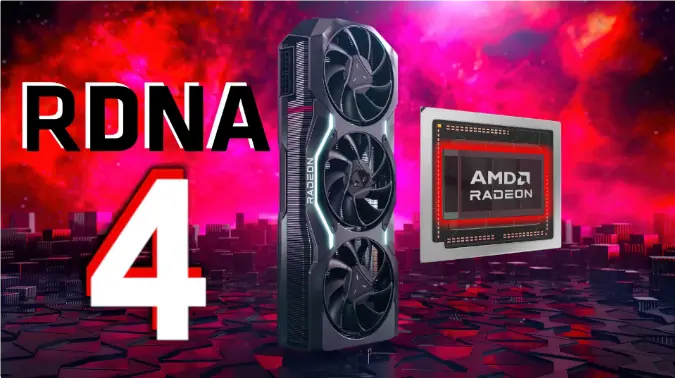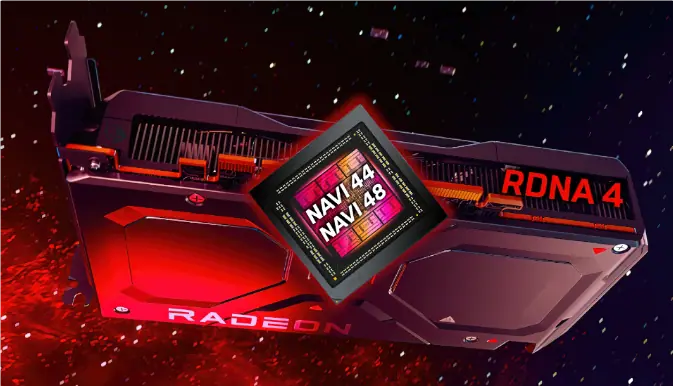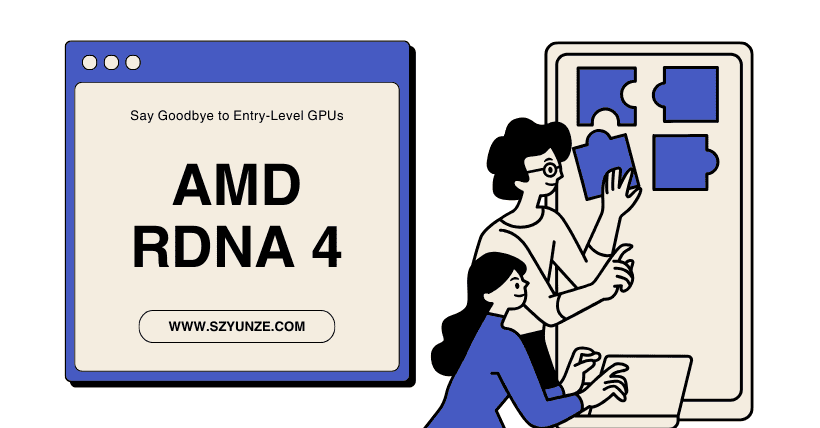In recent years, AMD’s movements in the graphics card market have been closely watched, especially the performance of its RDNA architecture series. However, the latest news indicates that AMD has decided to forgo launching entry-level graphics cards based on the RDNA 3 architecture, specifically the Radeon RX 7400 and RX 7300. This decision reflects AMD’s strategic shift to allocate more resources toward developing next-generation RDNA 4 architecture graphics cards.

According to a report from Benchlife, AMD’s partners are currently not developing any new RDNA 3 GPUs, particularly the entry-level products like the Radeon RX 7400 and RX 7300. Typically, AMD’s AIB (Add-In Board) partners release graphics card products that meet the demands of a broader consumer market. As a result, while we may still see these products in some OEM manufacturers’ pre-built PCs, the chances of entry-level RDNA 3 architecture graphics cards appearing on the market have significantly diminished.
This news indicates that AMD and its partners have already shifted their focus to the RDNA 4 architecture, which is expected to debut in the first quarter of 2025, possibly making its first appearance at the 2025 CES (Consumer Electronics Show). According to industry rumors, the two main chips of the RDNA 4 series will be Navi 48 and Navi 44. Navi 48 will target the high-end market, while Navi 44 will cater to mainstream users. The originally planned enthusiast-level chips Navi 4C/4X have been canceled, suggesting a more cautious approach by AMD in its high-end market strategy for this generation of products.

Regarding performance expectations, the Navi 48 chip is anticipated to perform similarly to the current Navi 31 chip, with a price range of $400 to $500. The Navi 44 chip’s performance is expected to be close to that of the Navi 32, with an estimated price below $350. AMD hopes to regain market share with these new products in 2025, especially in the face of intense competition, where NVIDIA still holds a strong advantage in the high-end market.
Looking back, the last major product AMD released was the Radeon RX 7600 XT, which did not make a significant impact on the market. In comparison, the Radeon RX 7800 XT and RX 7700 XT performed slightly better, but market feedback remained lukewarm. However, recent price cuts and promotions have made these products more competitive, especially when compared to NVIDIA’s offerings.

The year 2024 has been relatively quiet for AMD’s Radeon graphics card division. During this time, NVIDIA launched its “Ada” SUPER series graphics cards, further solidifying its market position. Meanwhile, the Radeon team’s main progress in 2024 focused on software, particularly laying the groundwork for the upcoming RDNA 4 architecture.
Whether AMD can make a breakthrough in the future market competition remains to be seen. Although the current performance of the Radeon division has been less than satisfactory, the release of the next-generation RDNA 4 architecture graphics cards could be key to AMD’s resurgence. The success or failure of this new product series will directly affect AMD’s future position and competitiveness in the graphics card market.
Overall, AMD’s decision to abandon entry-level RDNA 3 graphics cards is not an impulsive move but a carefully considered strategic adjustment. By focusing on the more promising RDNA 4 architecture, AMD hopes to regain lost market share in the future. As 2025 approaches, anticipation for the RDNA 4 architecture is growing, and we will be watching to see if AMD can use this opportunity to restore its former glory in the graphics card sector.

Disclaimer:
- This channel does not make any representations or warranties regarding the availability, accuracy, timeliness, effectiveness, or completeness of any information posted. It hereby disclaims any liability or consequences arising from the use of the information.
- This channel is non-commercial and non-profit. The re-posted content does not signify endorsement of its views or responsibility for its authenticity. It does not intend to constitute any other guidance. This channel is not liable for any inaccuracies or errors in the re-posted or published information, directly or indirectly.
- Some data, materials, text, images, etc., used in this channel are sourced from the internet, and all reposts are duly credited to their sources. If you discover any work that infringes on your intellectual property rights or personal legal interests, please contact us, and we will promptly modify or remove it.



